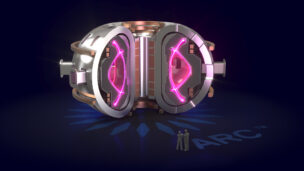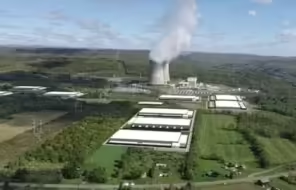The next hotspot for nuclear reactor construction is underground.
At least, that’s the future reactor startup Deep Fission wants to make happen. The company emerged from stealth last week with $4M in seed funding and a vision to use borehole drilling to plant SMRs a mile beneath the surface of the Earth. This approach would reduce deployment costs by relying on natural geologic properties instead of expensive containment structures.
8VC led Deep Fission’s seed round.
Borehole basics: Before we can get into the nitty-gritty of Deep Fission’s reactor concept, we’ve got to dig down into boreholes. Borehole drilling is a specialized drilling technique that bores a very narrow, very deep hole into the ground. Drilling can occur at multiple angles into the Earth, not only straight down.
The startup’s founders, father-daughter duo Richard and Elizabeth Muller, are no strangers to the nuclear sector or to borehole drilling.
- They also founded Deep Isolation, a nuclear waste disposal company that leverages borehole drilling to build deep geologic repositories for high-level waste.
- The pair previously worked on shale gas projects that utilize directional drilling.
In short, the idea is to drill boreholes into the ground, place modular fission reactors inside, and retrieve the energy produced for use elsewhere. The Mullers believe that the borehole concept is perfectly suited for the containment needs of a nuclear reactor, especially because the tech would remain accessible.
“There is still this perception that what goes down a borehole cannot be retrieved, which is false,” Deep Fission CEO Liz Muller told Ignition in February. “Anybody who’s worked with the drilling industry knows that it’s very common to put something down a borehole to pull it back up again. You can detach from it, you can reattach.”
Going fission: Deep Fission is planning a modular version of a traditional light-water reactor using low-enriched uranium fuel—just like most operating nuclear reactors in the US. That means the company could leverage existing supply chains rather than wait on new tech development.
The team wants to leverage that familiar design based on tried-and-true tech to streamline the licensing process. Deep Fission has been in talks with the NRC and has submitted a regulatory engagement plan for its concept.
+ Want more? Ignition caught up with Liz Muller back in February, when she was leading borehole waste disposal company Deep Isolation as CEO, and talked about her vision for nuclear waste disposal and what it means for the growth of the nuclear sector.
Lead Reporter of Ignition





